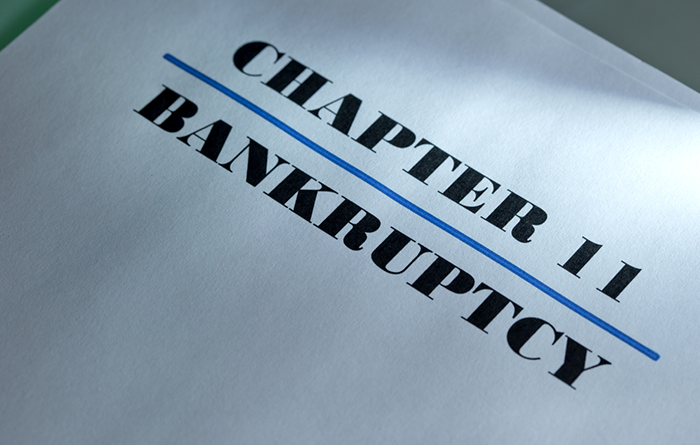
by manovermachine | Apr 10, 2023 | Ovarian Cancer and Talcum Powder
Johnson & Johnson announced on April 4 that its subsidiary LTL Management LLC (LTL) has re-filed for voluntary Chapter 11 bankruptcy protection to obtain approval of a reorganization plan that they believe will equitably and efficiently resolve all claims arising from cosmetic talc litigation against the Company and its affiliates in North America. To that end, the Company has agreed to contribute up to a present value of $8.9 billion, payable over 25 years, to resolve all the current and future talc claims, which is an increase of $6.9 billion over the $2 billion previously committed in connection with LTL’s initial bankruptcy filing in October 2021. LTL also has secured commitments from over 60,000 current claimants to support a global resolution on these terms.
– Source: Yahoo News
This follows on the heels of the 3rd Circuit Court of Appeals in Philadelphia ruling last Friday that Johnson & Johnson and its subsidiary LTL Management could not delay a court order dismissing the Chapter 11 bankruptcy they initially filed in October of 2021. The reason for dismissing the bankruptcy filing in the first place was that J&J is not facing financial distress, and is therefore not entitled to the bankruptcy protection filed by its subsidiary.
Plaintiff Response
Andy Birchfield, a plaintiffs’ lawyer at law firm Beasley Allen, said on Tuesday that claims “could easily be resolved if Johnson & Johnson would stop playing games and abusing the bankruptcy court process.”
The judge overseeing the case on Tuesday said he planned to dismiss the J&J unit’s bankruptcy as soon as today. That would allow lawsuits and trials to resume in courts across the United States.
Securing widespread agreement among plaintiffs for a settlement could ease the path of J&J’s subsidiary if it files a second bankruptcy. In the first case, litigants resisted settling, balking at the company’s initial $2 billion offer. Court-ordered mediation sessions failed to produce an agreement.
Even with a prearranged settlement, however, a minority of talc plaintiffs could ask the bankruptcy judge to dismiss the Chapter 11 filing yet again, triggering the same hearings and rulings that led the appeals court to invalidate the tactic in the first place.
– Source: Reuters
The J&J Statement
“The Company continues to believe that these claims are specious and lack scientific merit,” said Erik Haas, Worldwide Vice President of Litigation, Johnson & Johnson. “However, as the Bankruptcy Court recognized, resolving these cases in the tort system would take decades and impose significant costs on LTL and the system, with most claimants never receiving any compensation. Resolving this matter through the proposed reorganization plan is both more equitable and more efficient, allows claimants to be compensated in a timely manner, and enables the Company to remain focused on our commitment to profoundly and positively impact health for humanity.

by manovermachine | Apr 3, 2023 | Ovarian Cancer and Talcum Powder
Chapter 11 bankruptcy dismissed
The 3rd U.S. Circuit Court of Appeals based in Philadelphia on Friday ruled that Johnson & Johnson, on behalf of its subsidiary, LTL Management, could not delay a court order dismissing its bankruptcy. Johnson & Johnson had sought to stay the court order while the company plans to appeal to use the bankruptcy to resolve tens of thousands of lawsuits over its talc products. LTL has not yet filed a formal petition to the U.S. Supreme Court.
In January, the 3rd Circuit had ruled that neither LTL nor J&J were in financial distress, and therefore did not have a legitimate need for bankruptcy protection. The judge overseeing the case, U.S. Bankruptcy Judge Michael Kaplan indicated that as soon as the 3rd Circuit issued a formal mandate to end the bankruptcy, he would allow talc lawsuits to resume. The 3rd Circuit on Friday directed Judge Kaplan to dismiss LTL’s Chapter 11 case.
There are more than 38,000 lawsuits alleging that the company’s baby powder and other talc products are contaminated with asbestos and have caused ovarian cancer and mesothelioma. J&J maintains that its consumer talc products are safe and asbestos-free. They stopped selling the talc baby powder in the U.S. and Canada in 2020 and announced that they intended to discontinue the product worldwide in 2023.

by manovermachine | Jan 30, 2023 | Ovarian Cancer and Talcum Powder
Third Circuit Court dismisses J&J’s bankruptcy bid
In a reversal of a New Jersey bankruptcy judge’s ruling, the Third Circuit on Monday dismissed the Chapter 11 bankruptcy case filed by Johnson & Johnson spinoff, LTL Management.
“Good intentions— such as to protect the J&J brand or comprehensively resolve litigation—do not suffice alone,” the opinion said of the debtor’s good faith. “What counts to access the bankruptcy code’s safe harbor is to meet its intended purposes. Only a putative debtor in financial distress can do so. LTL was not. Thus we dismiss its petition.”
Timeline:
- October 2021 – LTL Management LLC is a new entity created by Johnson & Johnson in order to spin off billions in talc liability along with some nominal assets.
- October 14, 2021 LTL files for Chapter 11 bankruptcy in North Carolina court. Talc claimants filed motions to dismiss the case.
- Weeks later, the case was transferred to New Jersey, where J&J is headquartered.
- February 25, 2022 a New Jersey bankruptcy judge allowed the bankruptcy filing by LTL to proceed.
- September 19, 2022 plaintiffs argued in federal appeals court for a reversal of the bankruptcy court’s decision.
- January 30, 2023 Third Circuit issues its ruling dismissing the Chapter 11 case and says “the company was not in financial distress and lacked the required good faith to commence its bankruptcy case.” Law360

by manovermachine | Sep 19, 2022 | Ovarian Cancer and Talcum Powder
On Monday, September 19, lawyers for the plaintiffs in the talcum powder lawsuit against Johnson&Johnson argued that the federal appeals court should reverse a bankruptcy court’s decision that halted nearly 40,000 lawsuits against the company. Back in February, the bankruptcy court in Trenton, New Jersey had affirmed the ability of Johnson&Johnson’s use of Chapter 11 to hasten a settlement that would free the company from claims against its talcum products, which contain cancer-causing agents.
Last October, in an effort to claim protection under the Chapter 11 bankruptcy, J&J created a spinoff unit, LTL Management, that would file bankruptcy in order to manage the liability caused by their talcum powder products. As explained by Bloomberg Law, “The maneuver, known as the Texas Two-Step because of its reliance on Texas corporate law, involves a company spinning off a unit and transferring its tort liability to that unit. The spinoff is then put into bankruptcy to manage that liability without putting the assets of the original company into play.”
In refusing to dismiss the Chapter 11 case in February, U.S. Bankruptcy Chief Judge Michael Kaplan of the District of New Jersey concluded that LTL Management had not acted in bad faith.
Last week, J&J offered a $5 billion stock buyback program to its equity holders. Jeffrey Lamken of MoloLamken in Washington, D.C., representing the Official Committee of Talc Claimants, argued that the LTL Management Chapter 11 case violated core principles of bankruptcy law—most notably that creditors should get priority over equity holders.
“LTL or J&J is trying to turn what should be that shield of bankruptcy into a sword by not complying with any of the obligations,” said Sean Janda, an appellate attorney at the U.S.Department of Justice’s civil division in Washington, D.C.
The attorney representing LTL Management, former acting Solicitor General Neal Katyal, of Hogan Lovells in Washington, D.C., argued that the appeals court should uphold the ruling by the bankruptcy court, saying that the $61 billion funding agreement set aside for claimants was “a floor, not a ceiling.”
Lamken pointed out that it has taken years to get other bankruptcy cases resolved that involved a divisional merger. David Frederick, of Kellogg Hansen Todd Figel& Frederick in Washington, D.C., said bankruptcy would pay less money to claimants. “Johnson & Johnson did not go to all this trouble in order to pay claimants more money,” said Frederick, who represented 7,000 talc claimants for Houston plaintiffs firm Arnold & Itkin. “They went to this trouble to pay claimants less money, more slowly. The civil system is designed, with whatever flaws it has, to promptly move along cases and not to stop and stay all action.”
Plaintiffs’ attorneys presented oral arguments for three hours to the three-judge panel hearing the appeal. Justices Thomas Ambro, Luis Felipe Restrepo, and Julio Fuentes asked questions such as whether Bankruptcy court or multidistrict litigation was preferable for claimants, and whether arguments would differ if LTL Management had been formed much earlier than two days before filing for Chapter 11 bankruptcy.
Lawyers on both sides expressed optimism about the panel’s decision, which is expected to come down next month. Clay Thompson, from Maune Raichle Hartley French & Mudd, LLC, which represents some of the plaintiffs said the appeal will go to the Supreme Court if the ruling doesn’t go their way.

by manovermachine | Aug 18, 2022 | Ovarian Cancer and Talcum Powder
Located at the ends of the fallopian tubes in the female reproductive system, ovaries are almond-sized glands that produce eggs and in which the female hormones estrogen and progesterone are made. The Mayo Clinic explains that ovarian cancer is a type of cancer that begins in the ovaries, but can multiply quickly and invade and destroy healthy body tissue anywhere in the body.
Ovarian cancer begins when cells in or near the ovaries develop mutations in their DNA. The cancer cells grow and multiply quickly, forming tumors which can break off to spread or metastasize to other parts of the body. Depending on where the cancer begins, determines the type of ovarian cancer that develops and what the best treatment options are.
- Epithelial ovarian cancer is the most common
- Stromal tumors which are rare are usually diagnosed earlier than other ovarian cancers
- Germ cell tumors are rare ovarian cancers that tend to occur at a younger age
Risk Factors for Ovarian Cancer
- Risk increases with age and is most often diagnosed in older women
- Certain gene changes inherited from your parents
- Family history of ovarian cancer
- Being overweight or obese
- Postmenopausal hormone replacement therapy
- Endometriosis
- Early menstruation and/or late menopause
- Never having been pregnant
Taking birth control pills can help reduce your risk of developing ovarian cancer. Genetic testing, especially if there is a family history of breast or ovarian cancers, can help decide whether you should consider surgery to remove your ovaries in order to prevent cancer.
Connection Between Ovarian Cancer and Talcum Powder Use
While Johnson & Johnson’s baby powder is probably the most recognizable brand of talcum powder used by women, there are multiple companies being sued by women diagnosed with ovarian cancer. The cancer-causing ingredient in talcum powder is asbestos, and when it is used on the genital area or on undergarments, sanitary pads, diaphragms or condoms it is thought that it can enter the body and travel through the vagina, uterus, and fallopian tubes to the ovaries. Among the many studies conducted so far on the possible link between talcum powder and ovarian cancer, results have been mixed. Some studies have reported a slightly increased risk and some studies have reported no increase.
Studies have suggested that there is an increased risk of lung cancer and other respiratory diseases among talc miners and millers, due to the asbestos content naturally found in talc. Purified talc in consumer products does not contain asbestos.


